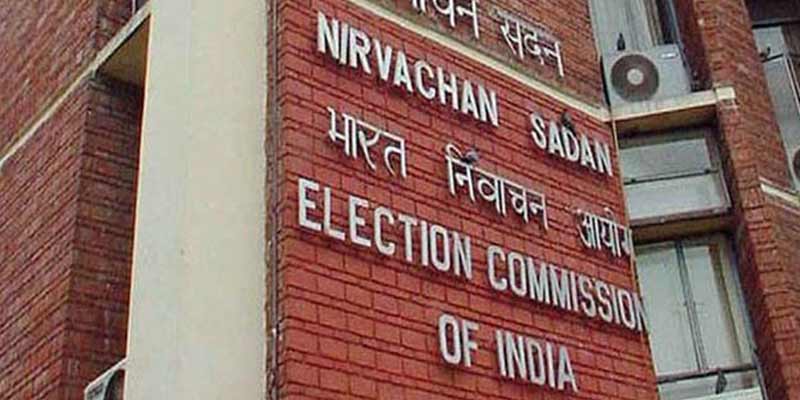- India
- Feb 06
EC conveys zero tolerance towards use of children in election campaign
• Ahead of Lok Sabha polls, the Election Commission asked political parties not to use children in campaigning in any form whatsoever, including for distribution of posters and pamphlets or sloganeering.
• It noted that in 2014, the Bombay High Court had also stressed the need to ensure that political parties do not allow participation of minor children in any election-related activities.
• The advisory on children came days after its earlier advisory to political parties to maintain respectful discourse towards persons with disabilities (PwDs).
Key points mentioned by the EC:
• In an advisory sent to parties, the EC conveyed its zero tolerance towards use of children in any manner during the electoral process by parties and candidates.
• Separately, the poll panel has also directed all election officials and poll machinery to refrain from involving children in any capacity during election-related work or activities.
• District election officers and returning officers will bear personal responsibility to ensure compliance with all relevant acts and laws pertaining to child labour.
• Any violation of these provisions by election machinery under their jurisdiction will result in severe disciplinary action.
• Political leaders and candidates should not use children for campaign activities in any manner, including for holding a child in their arms, carrying a child in a vehicle or in rallies.
• This prohibition extends to the use of children to create the semblance of a political campaign in any manner including use through poem, songs, spoken words, display of insignia of political party or candidate.
• However, the mere presence of a child accompanied by their parent or guardian in proximity of a political leader who is not involved in any election campaigning activity by the political party, will not be construed as a violation of the guidelines.
• All political parties and candidates are required to ensure strict compliance with the Child Labour (Prohibition and Regulation) Act, 1986, as amended by the Child Labour (Prohibition and Regulation) Amendment Act, 2016.
• EC also reminded parties and candidates of the relevant laws dealing with child labour and asked them to ensure strict compliance.
Constitutional provisions for children
Constitutional provisions for children, provided under the Constitution of India, are affected/contravened when a child is found in street situations.
These provisions are:
• Article 14: The State shall not deny to any person equality before the law or the equal protection of the laws within the territory of India.
• Article 15(3): Nothing in this article shall prevent the State from making any special provision for women and children.
• Article 21: No person shall be deprived of his life or personal liberty except according to procedure established by law.
• Article 21(A): The State shall provide free and compulsory education to all children of the age of six to fourteen years in such manner as the State may, by law, determine.
• Article 23(1): Traffic in human beings and beggary and other similar forms of forced labour are prohibited and any contravention of this provision shall be an offence punishable in accordance with law.
• Article 24: No child below the age of 14 years shall be employed to work in any factory or mine or engaged in any other hazardous employment.
• Article 38(1): The State shall strive to promote the welfare of the people by securing and protecting as effectively as it may a social order in which justice, social, economic and political, shall inform all the institutions of national life.
• Article 39: The State shall, in particular, direct its policy towards securing…(e)…the tender age of children are not abused and that citizens are not forced by economic necessity to enter avocations unsuited to their age or strength.
• Article 39(f): ...Children are given opportunities and facilities to develop in a healthy manner and in conditions of freedom and dignity and that childhood and youth are protected against exploitation and against moral and material abandonment.
• Article 45: The State shall endeavour to provide early childhood care and education for all children until they complete the age of six years.
Manorama Yearbook app is now available on Google Play Store and iOS App Store

